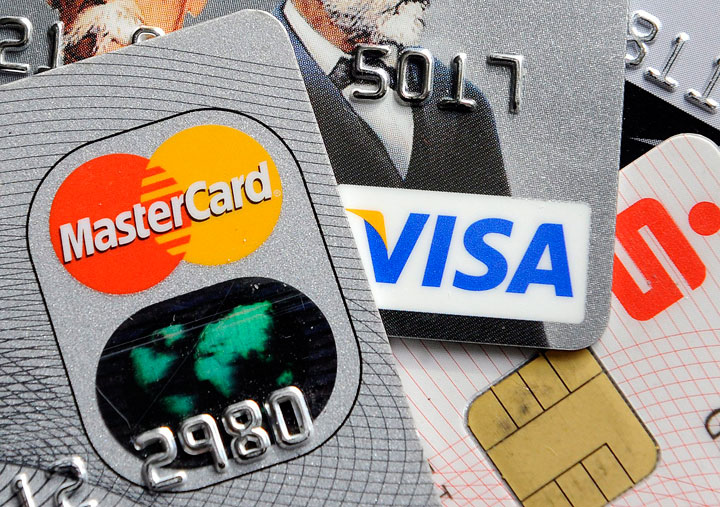Loyalty rewards programs have juiced up their perks in recent years as credit-card providers and banks have jostled more aggressively for you to use their card rather than a rival’s.

To cover the added costs of the beefed up flight rewards, cash-back on groceries and other frills, Visa and MasterCard and their bank partners have inflated so-called “interchange” or swipe fees they charge to merchants.
“That will change this year,” Peter Sojka, a rewards expert, said. In April, both Visa and MasterCard Canada are reducing the fees they charge merchants to 1.5 per cent of the value of the transaction, bowing to pressure from the federal government (which says the rising costs ultimately flow back to consumers).
MORE: Visa, MasterCard Canada agree to slash swipe fees
That amount compares to the “return” on some rewards programs that’s climbed to 4 per cent or more on card spending, meaning for every $100 swiped on a premium card, the cardholder earns the equivalent of $4 or higher with the program.
“There aren’t a lot of details surrounding this agreement but just a simple look at the numbers suggests card issuers can’t give rewards of 1.5 to 2 per cent or higher when they are only earning 1.5 per cent,” Sojka said.
Sojka, who operates Rewards Canada blog, said sources at one of the “top rewards cards” indicated to him they will be lowering the per dollar earn rate when interchange changes kick in.
“In the 14 years since I’ve been covering the credit card rewards industry, this is the first time a self-initiated industry change will have a large scale negative impact on the rewards industry,” Sojka said.
- Life in the forest: How Stanley Park’s longest resident survived a changing landscape
- ‘They knew’: Victims of sexual abuse by Ontario youth leader sue Anglican Church
- Carbon rebate labelling in bank deposits fuelling confusion, minister says
- Buzz kill? Gen Z less interested in coffee than older Canadians, survey shows
Average rate
How much will rewards suffer from the rate decision? Maybe not that much.
“We don’t know yet but if you read into the agreed upon interchange rate, the word ‘average’ is used, which leads us to believe Visa and MasterCard may actually still charge a higher rate for premium cards and a rate below 1.5 per cent for non-premium or non-rewards cards to achieve that average 1.5 per cent rate,” Sojka said.
Amex exempt
The new interchange deal only affects Visa and MasterCard customers (which, admittedly are by far the two biggest card providers in the country). American Express, whose business model differs from the other major issuers, is exempt.
“The interchange fallout could translate into a boon for American Express since, theoretically, they should be able to provide higher reward earnings per dollar spent than Visa or MasterCard,” Sojka said.
“Of course, a potential pitfall for Amex may come in the form of a retailer revolt as other major players (and there are rumours) follow Costco’s lead in parting ways with the more expensive card issuer.”
WATCH: Visa Canada and MasterCard Canada have made a voluntary agreement, at the urging of the Federal government, to cut transaction fees collected from merchants. But, will the savings be passed on to consumers? Eric Sorensen reports.


Comments